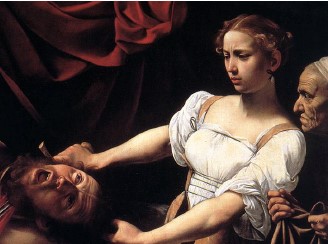
CFP, Fear and Loathing in the Earthly City
CFP, Fear and Loathing in the Earthly City – Negative Emotions in the Medieval and Early Modern Period c. 1100-1700
Call for Papers
Fear and Loathing in the Earthly City – Negative Emotions in the Medieval and Early Modern Period c. 1100-1700
1-2 November 2018
University of Southern Denmark
Keynote speakers: Malcolm Gaskill, University of East Anglia and Craig Taylor, University of York
The exploration, control and canalization of negative emotions played a crucial role in the Middle Ages and the Early Modern period. The fundamental negative emotions were conceptually expressed in the Seven Deadly Sins and mirrored in The Seven Virtues. While the virtues were what humans should strive for in order to be good Christians, it was often their negative counterparts that appear most poignantly in the sources (written, pictorial or musical), because they were firmly embedded into the terrestrial life as ubiquitous obstacles to be overcome or coped with in order to gain salvation. This preoccupation with negative emotions and the sinfulness of man was strong in the Middle Ages and continued unabated during the reformations of the sixteenth century and beyond. Nevertheless, the perception of negative emotions was highly depended on the affective context, and they might not be perceived as unequivocally bad and negative. Anti-social emotions of fear, hatred, and envy which on the outset would be perceived of as negative, could depending on the exigencies of the situation be construed of as constructive and indeed even beneficial to man, society and ultimately God. The interpretation of emotions and their categorization as positive or negative was thus flexible in accordance with the demands of context and situation.
With this conference we seek to investigate cultures of negative emotions from an interdisciplinary angle and in all walks of life be they religious, rural, civic, aristocratic etc. We thus invite papers that explore the role of emotions expressing negativity such as fear, envy, hatred, but also melancholy and sadness in culture, society and the conception of the individual in the Middle Ages and the Early Modern Period, c.1100 to 1700.
Please send an abstract (200 words) of your proposed paper and a short biography before 1 April 2018 to Louise Nyholm Kallestrup
Possible topics may include:
When is the seemingly anti-social, negative and/or bad emotions and potentially and sometimes even immediately understood as necessary and beneficial? How can we study that paradox?
Continuity and change: How and why did perceptions of negative emotions change?
What was the relationship between negative emotions and institutions of power (e.g. state, church etc.)?
What are negative emotions in a historical perspective? When, where and why are negative emotions considered appropriate?
How are negative emotions gendered?
How and when are negative emotion embodied?
How are negative emotions inherited in space and place?
The conference is organized by the Centre for Medieval and Renaissance Studies, SDU, and the National Museum of Denmark.
Conference venue: University of Southern Denmark, Campusvej 55, DK-5230-Odense M
Conference conveners: Thomas Heebøll-Holm, SDU; Martin Wangsgaard Jürgensen, National Museum of Denmark; Louise Nyholm Kallestrup, SDU